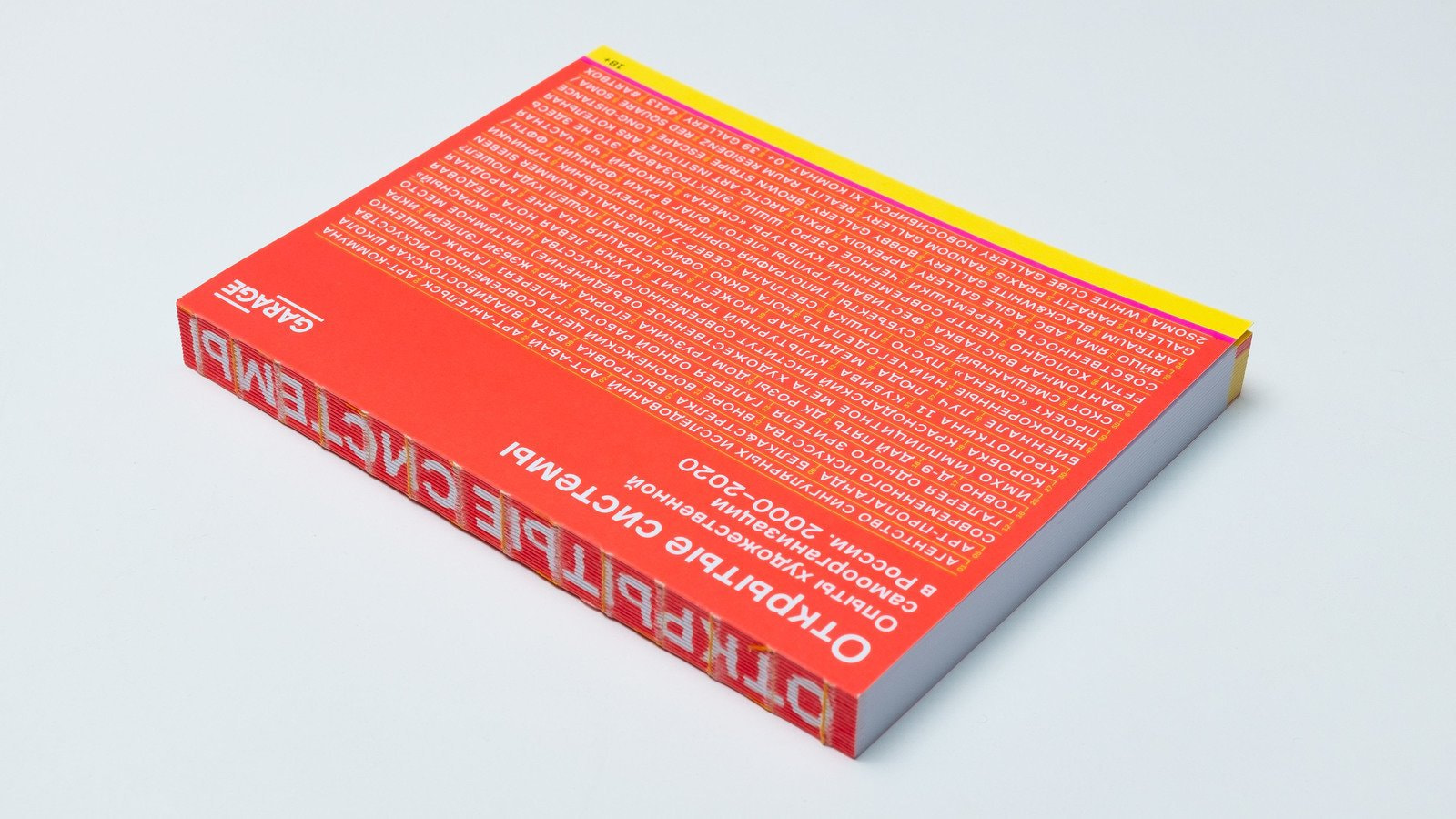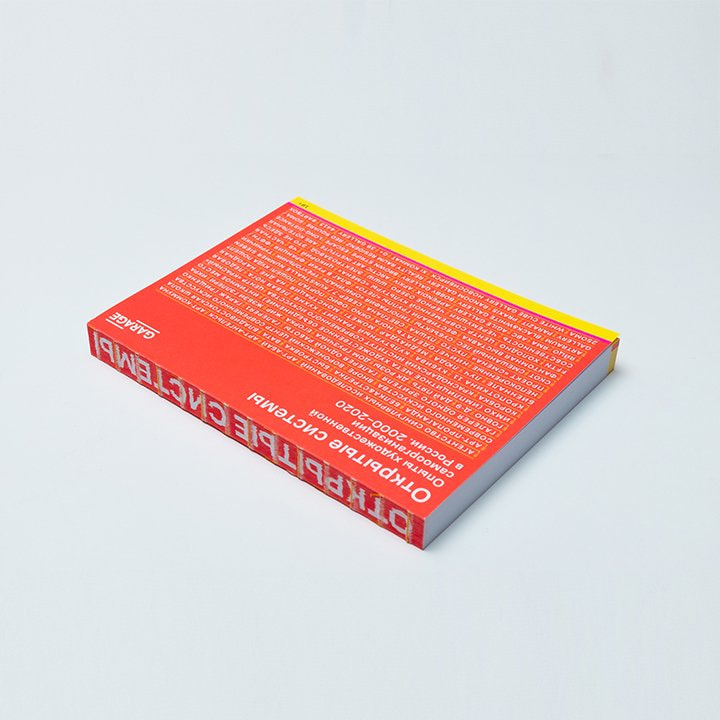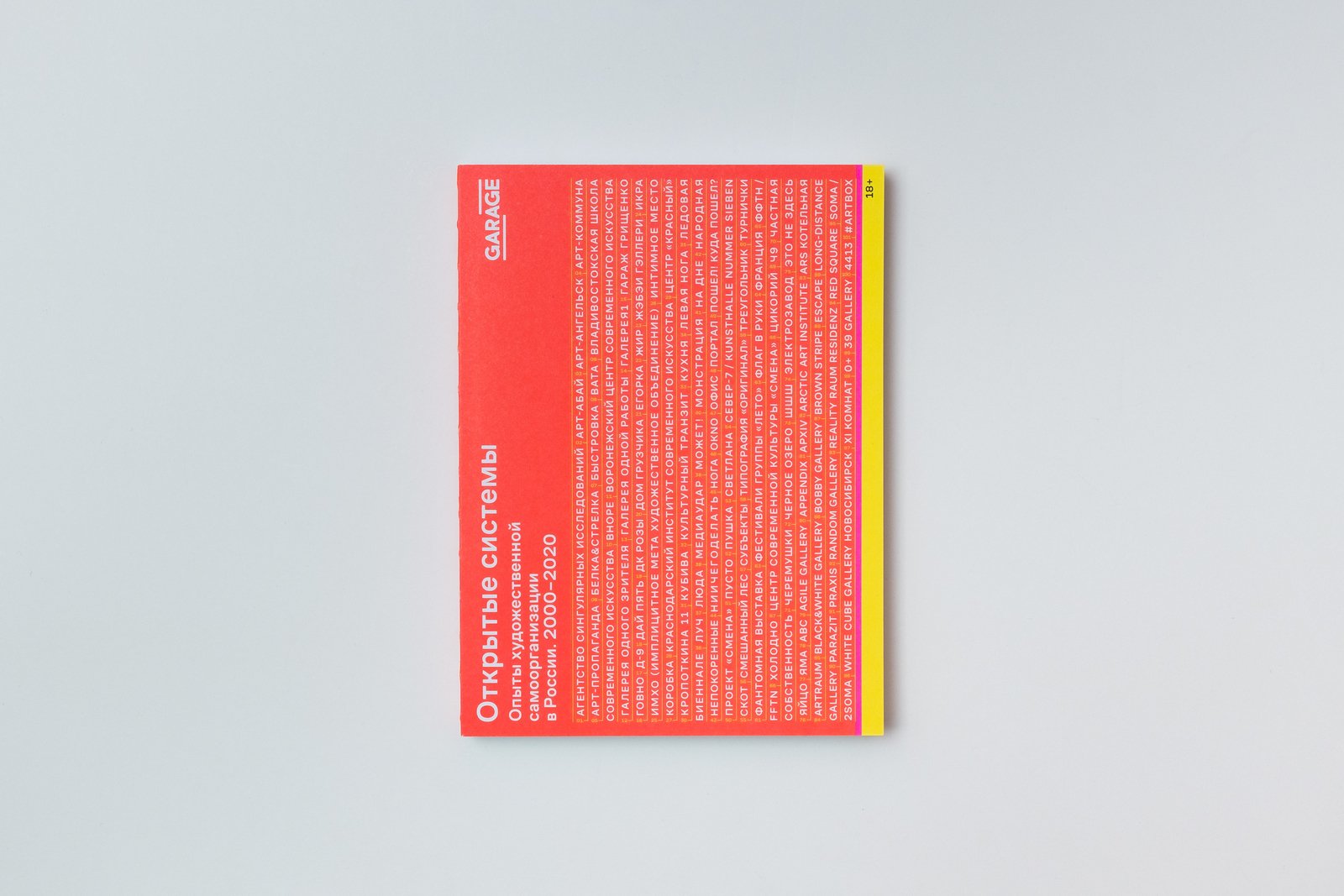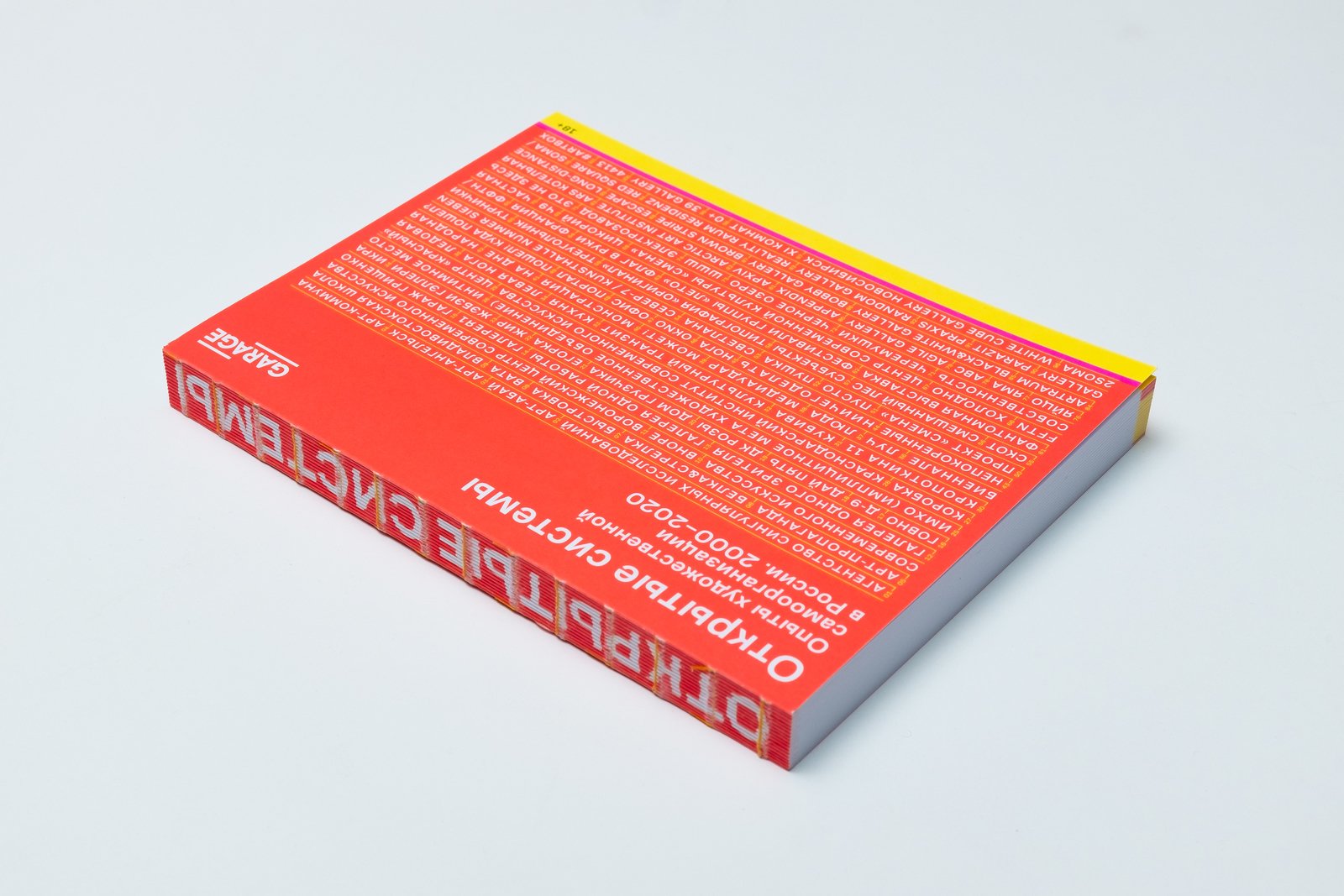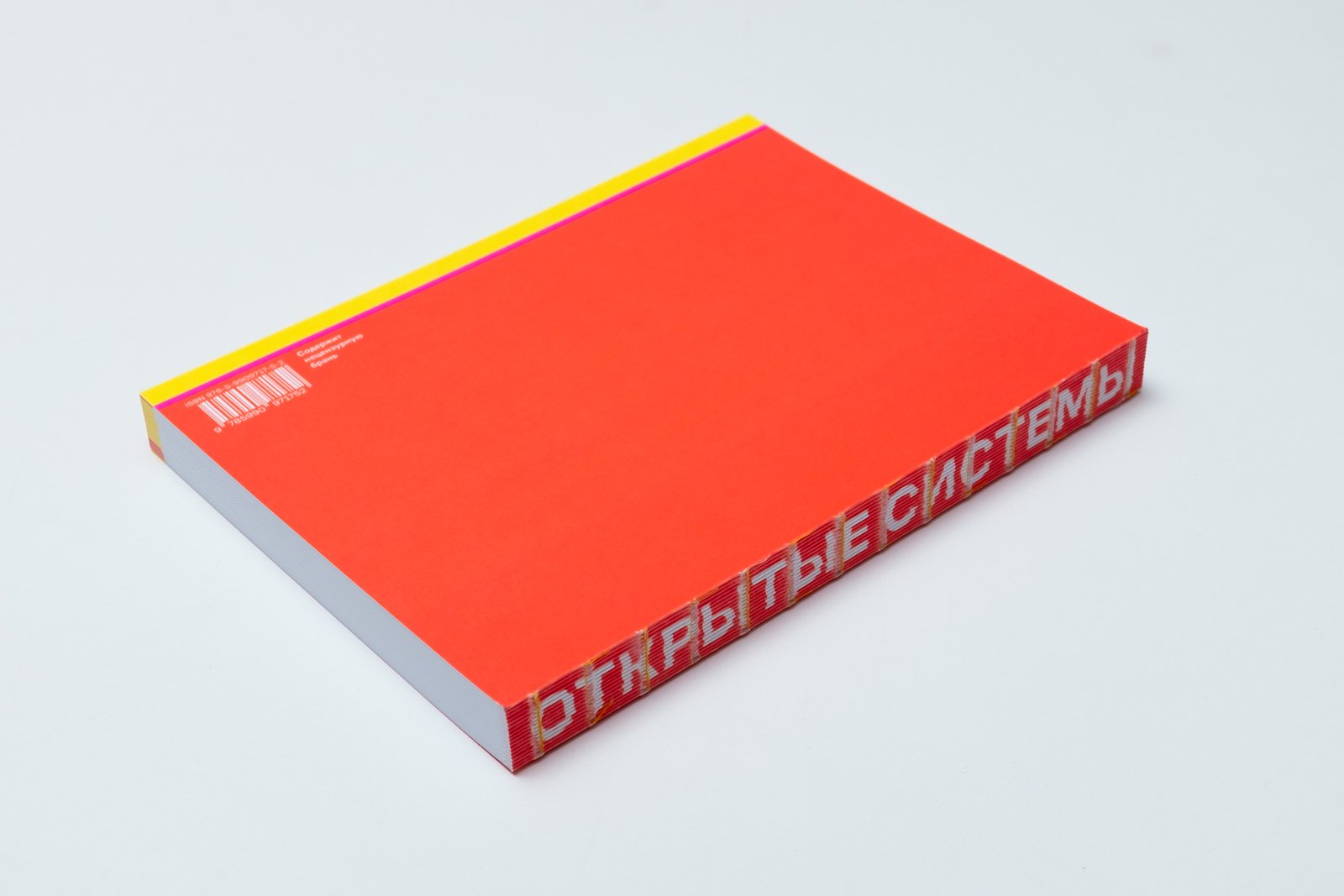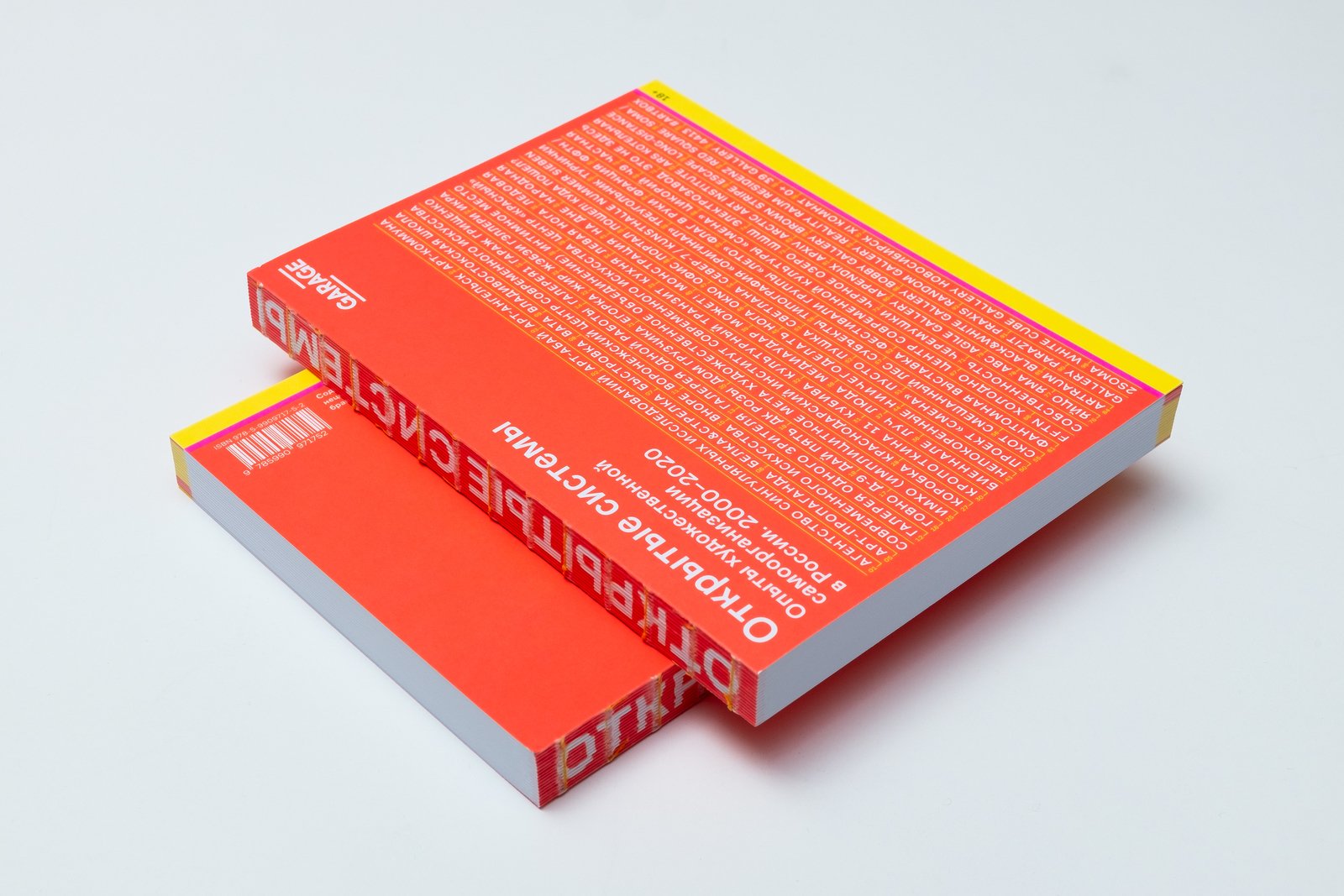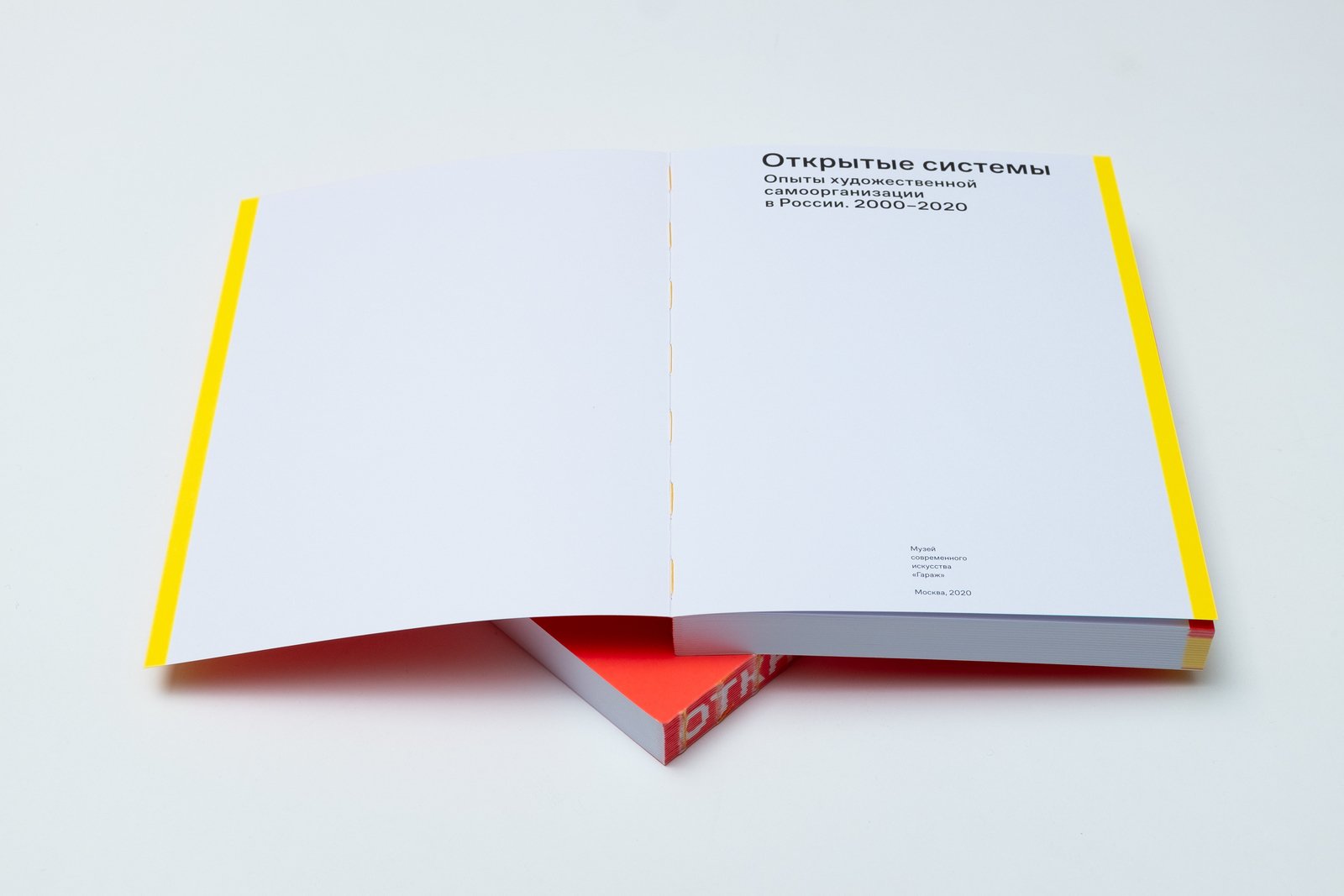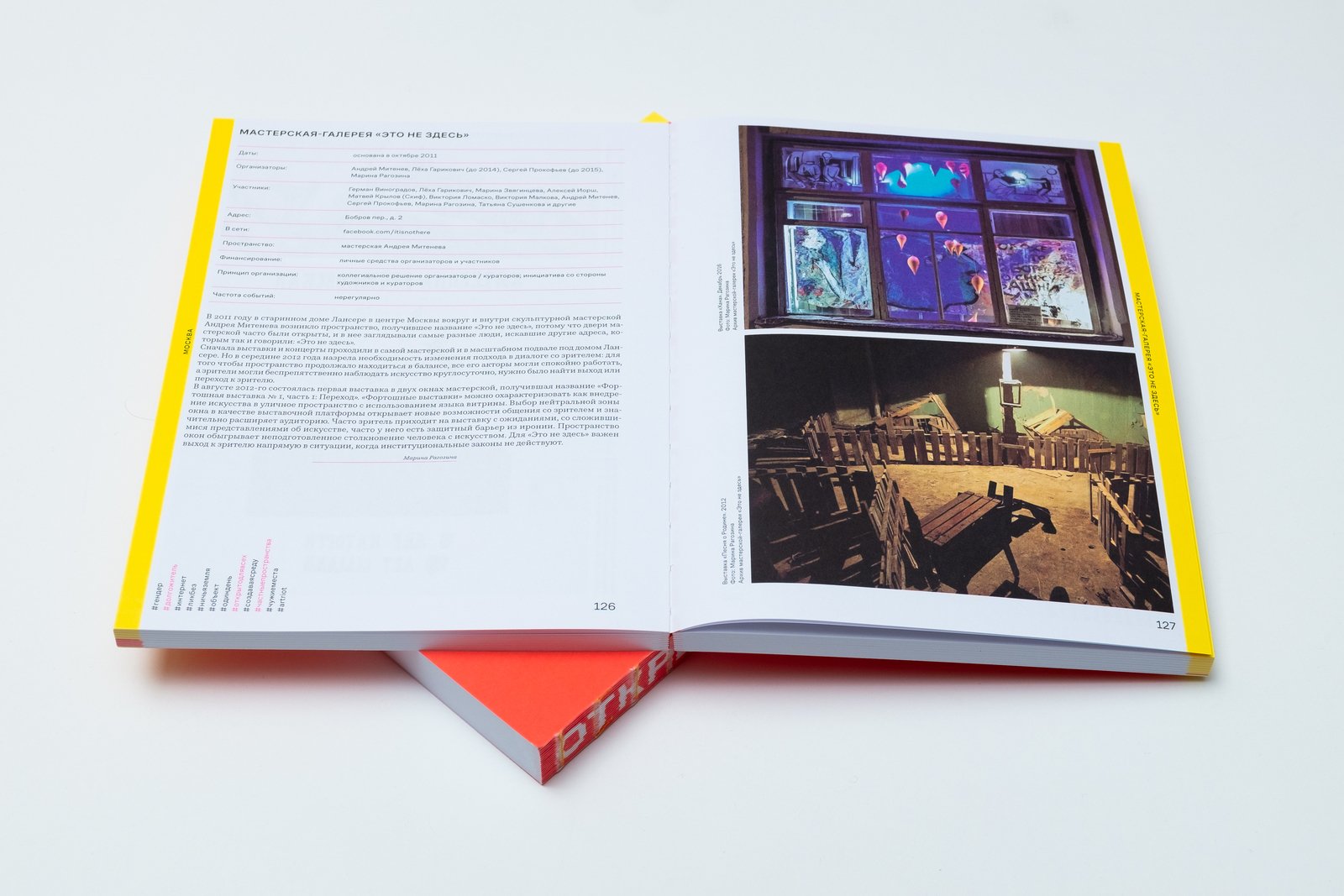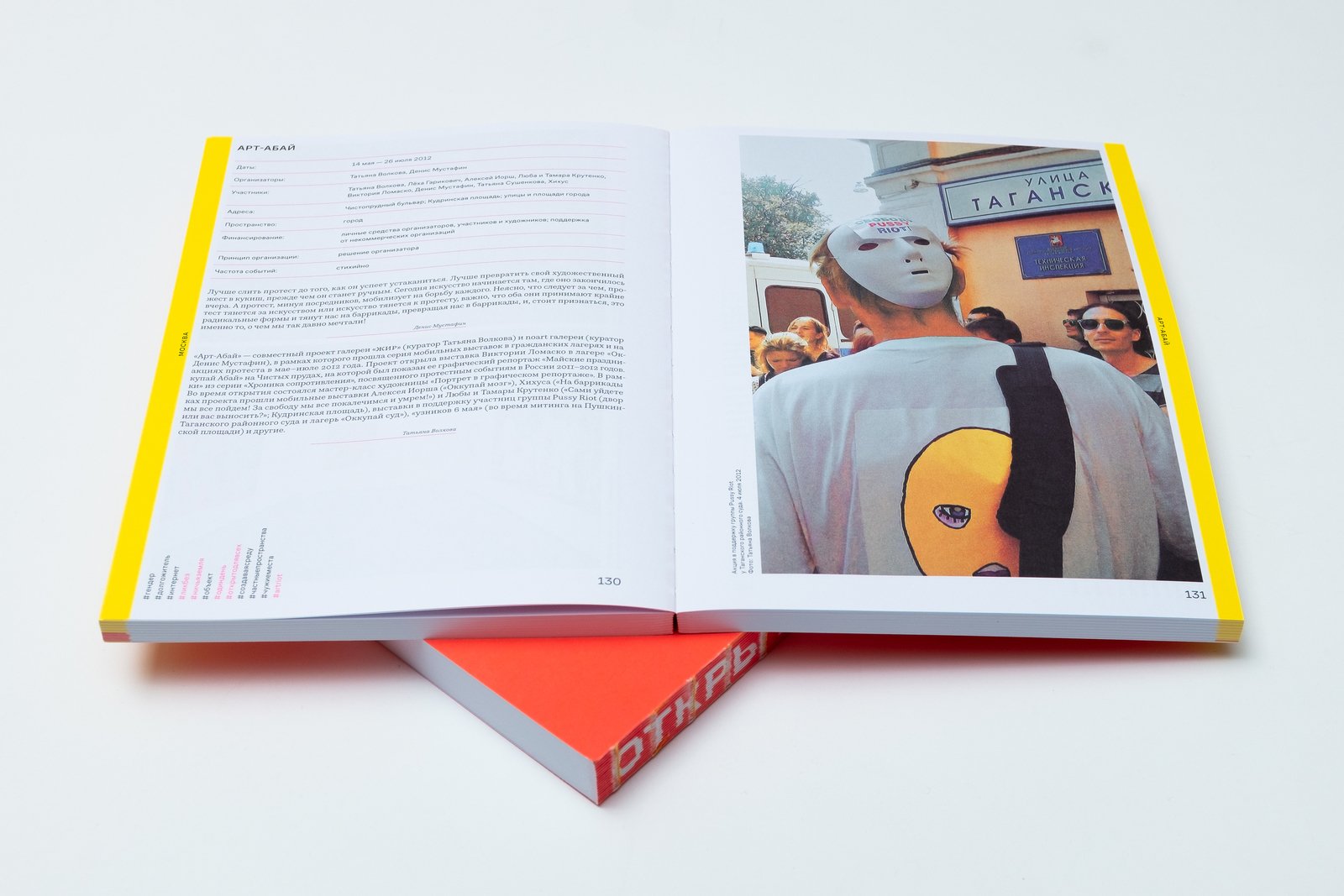Featuring 101 self-organized art initiatives based in Russia, from Kaliningrad to Vladivostok.
The book Open Systems: Self-Organized Art Initiatives in Russia, 2000–2020 is the result of a long-term research initiative launched by Garage in 2015. Conceived with the aim of enriching the Museum’s archive with current (and rapidly disappearing) documentation of artistic processes in the 2000s and 2010s, the project focused on self-organizations—associations of artists and curators who work independently to implement their artistic ideas.
The exhibition Open Systems: Self-Organized Art Initiatives in Russia, 2000–2015, which took place at Garage in 2015, presented the materials and became a starting point for the project team to set out on a journey across Russia in order to study self-organizations more closely, collect additional documentation, and produce exhibitions about the non-institutional art environment.
Following three years of field work and exhibitions held in eight Russian cities, we decided to pause and analyze what had been done. One hundred and one initiatives from all over the country became the heroes of the publication, which features questionnaire-based information about the selected self-organizations, photographs, and statements by the members of these initiatives. It is the largest possible survey of the variety of voices operating in contemporary Russian art.
Initiatives are grouped by city and then in the chronological order of their emergence.
The publication also features articles that approach self-organizations from different perspectives: an introduction by the initiator of the project, Sasha Obukhova; a description of the methodology used by the compiling editor of the book Antonina Trubitsyna; artist Ruslan Polanin’s theoretical reflections on the nature of self-organizations; researcher Margarita Kuleva’s sociological view of them; and curator Elena Ishchenko’s reflection on the subject of self-exploitation.
The publication includes name and keyword indexes. Detailed information about each initiative (chronicle of events and project documentation) is available via the Russian Art Archive Network (RAAN) electronic catalogue.
